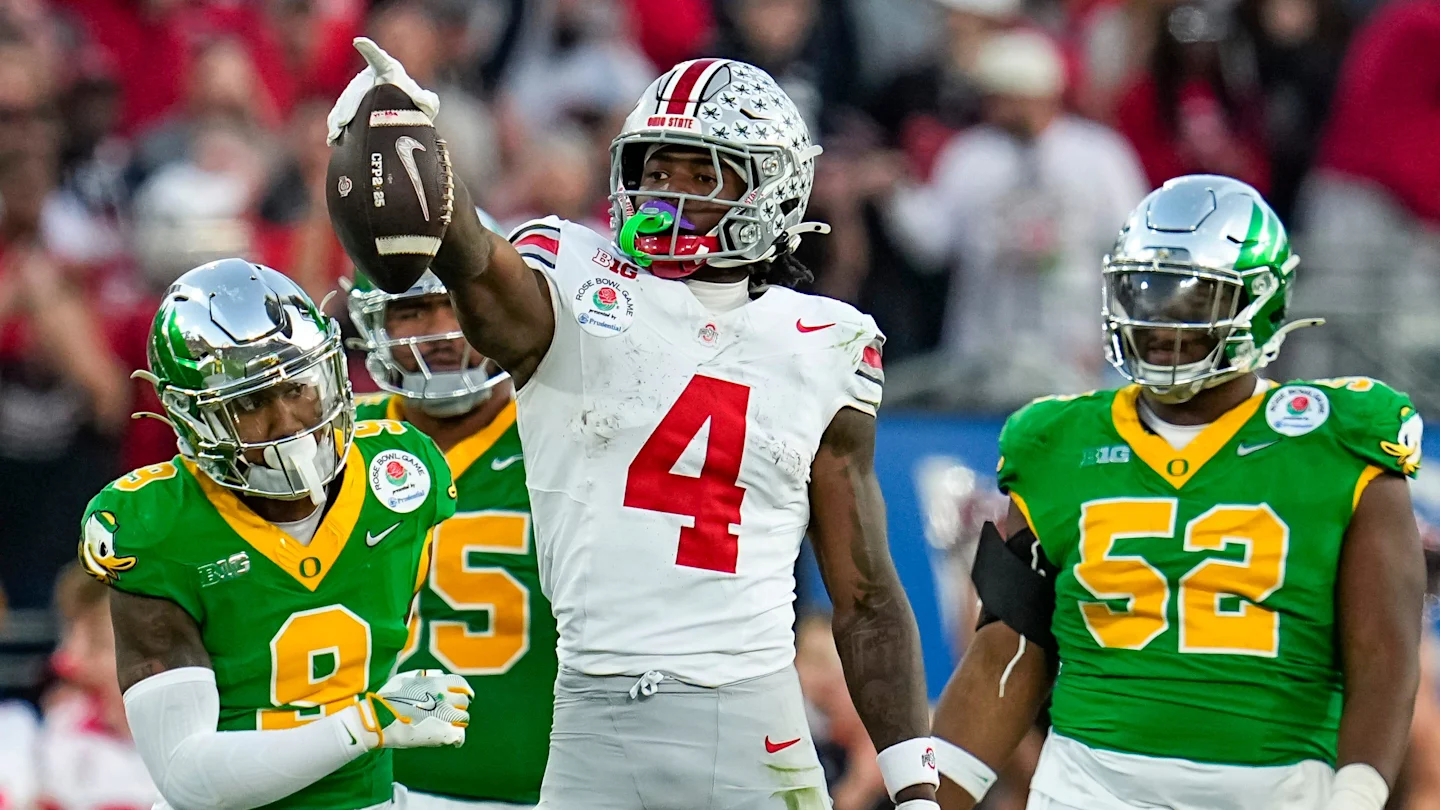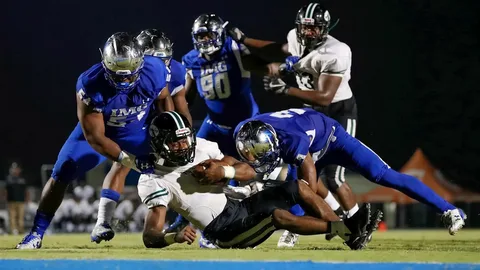In the world of college football, physical skill alone is not enough to achieve greatness. To perform at the highest level, players must develop mental toughness—an attribute that defines how well an athlete handles adversity, stress, and pressure. Mental toughness is the ability to stay focused, remain resilient in the face of setbacks, and push beyond your limits, both in practice and during high-stakes moments in a game.
For college football players, mental toughness can often make the difference between an average season and a championship-caliber one. It’s not just about fighting through fatigue or injury, but also about maintaining a positive mindset, staying confident under pressure, and showing relentless determination. In this article, we’ll explore how college football players can cultivate mental toughness and build a mindset that fosters success on and off the field.
Key Traits of Mentally Tough Athletes: Focus, Resilience, and Confidence
Mentally tough athletes are often characterized by several key traits that set them apart. Understanding these traits can help you develop a stronger, more resilient mindset. Let’s break down the three most important characteristics of mental toughness for college football players:
1. Focus: The Ability to Stay Present
In football, players are frequently faced with distractions—whether it’s the crowd, the noise on the field, or the pressure to perform. Mental toughness begins with the ability to focus on the present moment and block out external factors that could derail your performance.
How to Improve Focus:
- Visualization: Take time before practices and games to mentally visualize your performance. Picture yourself making successful plays, executing techniques flawlessly, and overcoming challenges.
- Mindfulness Techniques: Engage in mindfulness exercises to improve your awareness of the present moment. This could include deep-breathing exercises, meditation, or focusing on specific sensations during practice (such as feeling your feet on the ground or the ball in your hands).
- Goal Setting: Set small, achievable goals for each training session and game. This will help you stay focused on what’s directly in front of you rather than being overwhelmed by the bigger picture.
2. Resilience: Bouncing Back from Setbacks
In football, setbacks are inevitable. Whether it’s a missed tackle, a costly turnover, or an injury, mentally tough athletes don’t let failure define them. Instead, they view setbacks as opportunities for growth, learning, and improvement. Resilience is the ability to bounce back stronger from adversity and keep moving forward.
How to Build Resilience:
- Positive Self-Talk: Develop the habit of using positive self-talk, especially after mistakes. Remind yourself that failure is a part of the game and a learning experience. Statements like, “I’ll get it next time,” or “I can do this,” can help you reset and refocus.
- Keep a Long-Term Perspective: Understand that one mistake doesn’t define your entire career or season. Rather than dwelling on what went wrong, focus on your progress and future opportunities. Resilience is about maintaining your confidence even when things don’t go as planned.
- Adopt a Growth Mindset: Embrace the idea that your abilities can improve through effort and learning. A growth mindset helps you view mistakes and challenges as stepping stones to success rather than obstacles.
3. Confidence: Believing in Your Ability to Succeed
Confidence is at the core of mental toughness. College football players need to believe in their abilities, regardless of the circumstances. Self-confidence helps athletes perform under pressure, maintain poise in critical situations, and trust in their training and preparation.
How to Build Confidence:
- Preparation and Practice: Confidence is built on consistent, deliberate practice. The more you prepare and execute during practices, the more confident you’ll feel in real-game situations.
- Positive Reinforcement: Surround yourself with teammates, coaches, and mentors who provide encouragement and constructive feedback. Positive reinforcement boosts self-belief and helps you focus on your strengths.
- Celebrate Small Wins: Recognize and celebrate your progress, no matter how small. Achieving personal milestones, such as improving your technique or making a clutch play, reinforces your belief in your abilities.
Overcoming Adversity: Handling Injuries and Setbacks
Injuries are a part of football, and how you respond to them can significantly affect your mental toughness. The ability to persevere through injury, setbacks, and even doubts about recovery is a hallmark of resilient athletes. Here’s how to maintain mental toughness when faced with adversity:
1. Stay Focused on Your Recovery:
Injuries can be frustrating, but your attitude toward recovery is crucial. Embrace a mindset of patience and persistence. Focus on what you can do, rather than what you can’t, and take proactive steps to heal. Whether it’s physical therapy, strengthening exercises, or mental rehabilitation techniques, staying focused on the recovery process is key to bouncing back stronger.
2. Use Support Systems:
In times of injury or setback, lean on your support system—coaches, teammates, trainers, and even family and friends. They can provide both physical and emotional support, helping you stay positive and motivated throughout the recovery process.
3. Reshape Negative Emotions:
It’s natural to feel frustration, anger, or sadness when injured or faced with a setback. However, mentally tough athletes are able to reframe these negative emotions and use them as fuel. Acknowledge the feelings but channel them into motivation to get better, stronger, and more resilient.
Visualization and Goal Setting Techniques for Success
Visualization and goal setting are powerful tools for cultivating mental toughness. Elite athletes often use these techniques to mentally rehearse their success and prepare for challenges.
1. Visualization:
- Pre-Game Mental Rehearsal: Before a game or practice, take a few moments to close your eyes and mentally rehearse the scenarios you might face. Visualize yourself executing perfect tackles, making great passes, or playing your position with confidence. Visualizing success can help reduce anxiety and boost performance.
- Visualization of Overcoming Challenges: Picture yourself overcoming obstacles—whether it’s dealing with a tough opponent, fighting through fatigue, or coming back from a tough play. This mental practice prepares you to perform well under pressure.
2. Goal Setting:
- Short-Term Goals: Set daily or weekly goals that are within your control, such as improving your technique or increasing the number of reps in the gym. These small, achievable goals help build momentum and confidence.
- Long-Term Goals: Set overarching career goals, such as making the starting lineup, being named All-Conference, or earning a scholarship. Long-term goals provide direction and purpose, helping you stay motivated during tough times.
The Role of Sports Psychology: Working with a Mental Coach
Many successful athletes work with sports psychologists to enhance their mental toughness. A mental coach can provide personalized strategies to help you handle pressure, increase focus, and overcome challenges. If you feel like you need help developing your mental game, consider seeking out a mental coach or sports psychologist. They can teach you techniques like mindfulness, meditation, and mental resilience exercises to enhance your performance.
Maintaining Mental Toughness Throughout a Long Season
A long football season can test even the most mentally tough athletes. Here are a few ways to sustain mental strength throughout the ups and downs of a season:
- Stay Connected with Teammates: Your teammates are essential for maintaining mental toughness. Share your experiences, motivate one another, and build a strong team culture of support and accountability.
- Take Care of Your Mental Health: Mental toughness isn’t just about pushing through pain and adversity; it’s also about knowing when to take a step back. Prioritize mental health by finding ways to reduce stress, such as through meditation, journaling, or engaging in hobbies outside of football.
- Stay Adaptable: Flexibility in your mindset allows you to adapt to changing circumstances, whether it’s an unexpected injury, a coaching change, or a rough patch in your performance. Adaptability helps you remain composed during difficult times and continue to move forward.
Conclusion: Mental Toughness as a Foundation for Success
Mental toughness is an essential trait that college football players need to succeed both on and off the field. By focusing on traits like resilience, confidence, and focus, athletes can develop a mindset that allows them to overcome obstacles, perform under pressure, and maintain their motivation throughout a long season. Mental toughness is not something you are born with—it’s a skill that can be developed over time with practice, consistency, and a commitment to growth.
Whether you’re facing adversity in the form of a tough opponent, an injury, or personal doubts, developing mental toughness will empower you to push through, stay focused, and achieve your goals. Remember, the mind is just as important as the body in college football, and with the right mindset, you can achieve greatness.














Leave a Reply